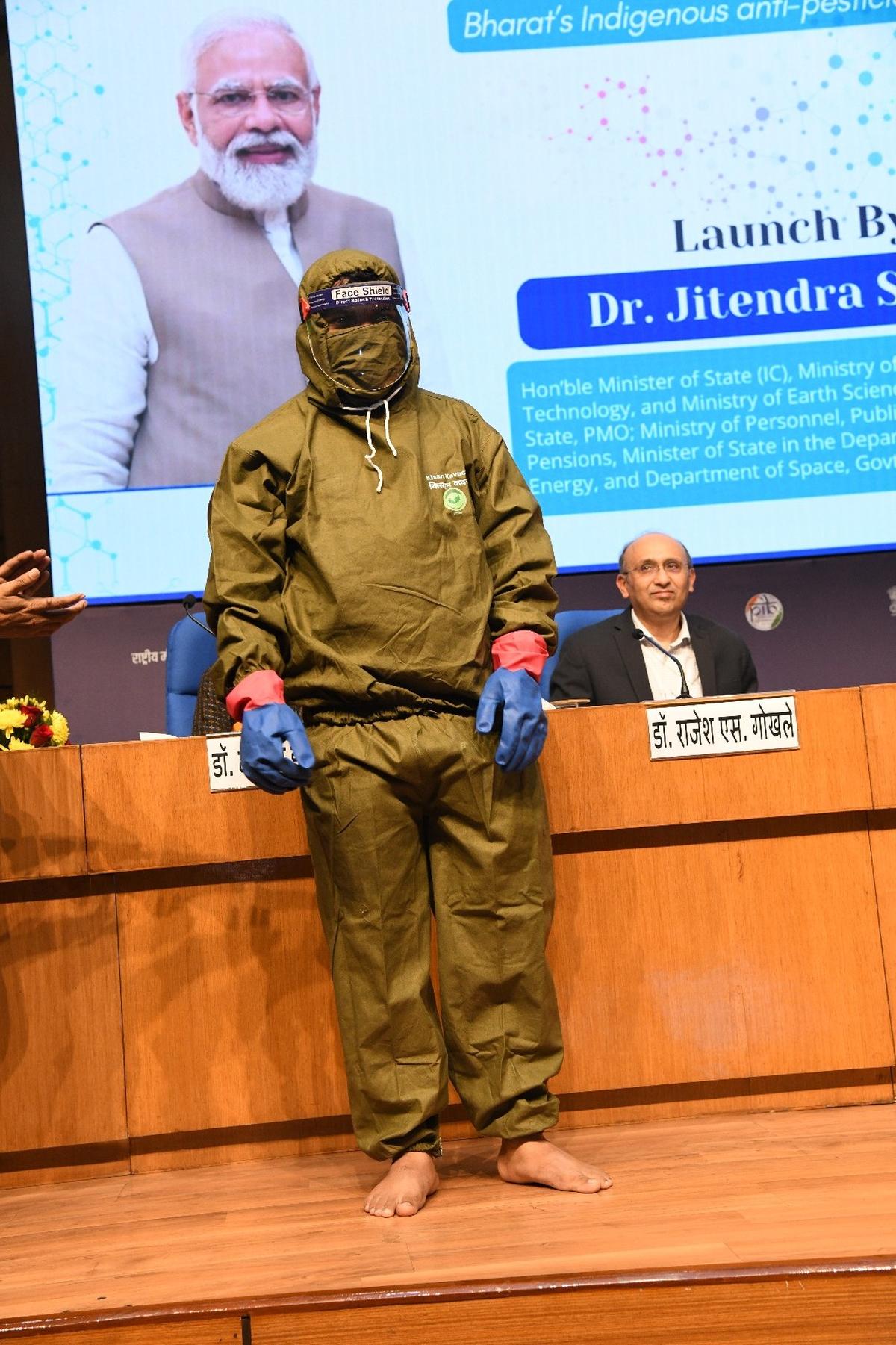Kisan Kavach

- 18 Dec 2024
In News:
Scientists develop ‘kisan kavach’ to shield farmers from pesticide sprays.
Key Highlights:
- Purpose: The Kisan Kavach is designed to shield farm labourers from harmful pesticide exposure. Pesticides, often neurotoxins, can be detrimental to health, causing symptoms like dizziness, headaches, vomiting, and even death with high exposure.
- Development:
- Developed by Biotechnology Research and Innovation Council (BRIC-inStem), Bangalore, in collaboration with Sepio Health Pvt. Ltd.
- Launched by Union Minister of State for Science and Technology.
- Fabric Technology:
- The suit uses oxime fabric, which chemically breaks down common pesticides on contact, preventing them from penetrating the skin.
- Mechanism: The fabric works through nucleophilic mediated hydrolysis, deactivating pesticides upon contact and preventing pesticide-induced toxicity and lethality.
- Components of the Kit:
- Consists of a trouser, pullover, and face-cover.
- Washable and reusable: The suit retains its protective properties even after 150 washes, in a wide temperature range, and under UV light exposure.
- Affordability:
- Priced at ?4,000 per kit, with efforts underway to reduce costs through increased production.
- Field Testing and Efficacy:
- Animal studies: Rodent tests showed that animals exposed to pesticides and covered with ordinary cotton cloth died within four days, while those with the activated fabric remained safe.
- Human trials are still pending.
- Health Implications:
- Pesticides are linked to chronic health issues, including cancer, as per studies by the National Institute of Nutrition (Indian Council of Medical Research).
- Global Context:
- In 2020, India used 61,000 tonnes of pesticides, despite producing much more (2,58,130 tonnes in 2022-2023).
- Pesticide-related health issues are a major concern, with 60% of India’s adult workforce engaged in agriculture.
- Impact:
- The suit aims to protect farm labourers from pesticide exposure and promote sustainable agriculture.
- It could help reduce health complications and improve working conditions for farmers, who often lack proper protective gear.
- Future Plans:
- Awareness campaigns will be conducted to inform farmers about this protective technology.
- Efforts are underway to make the kit more affordable as demand increases.
